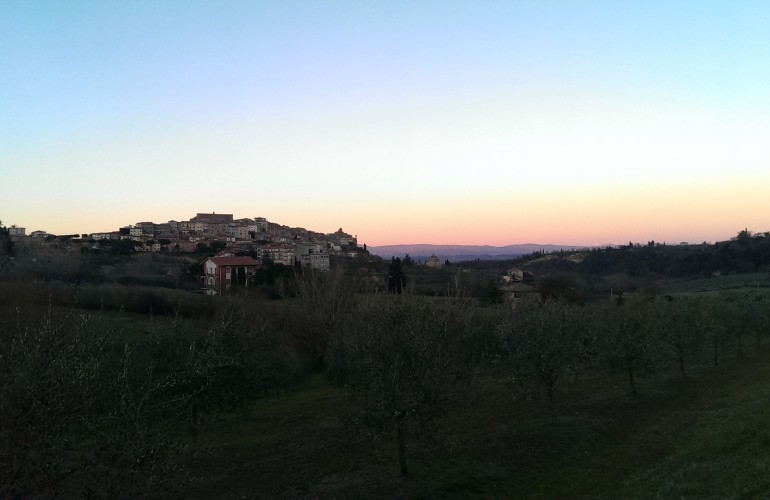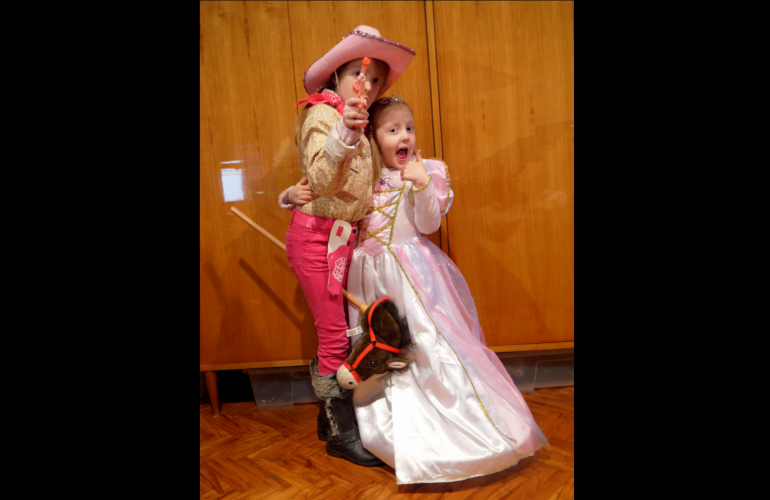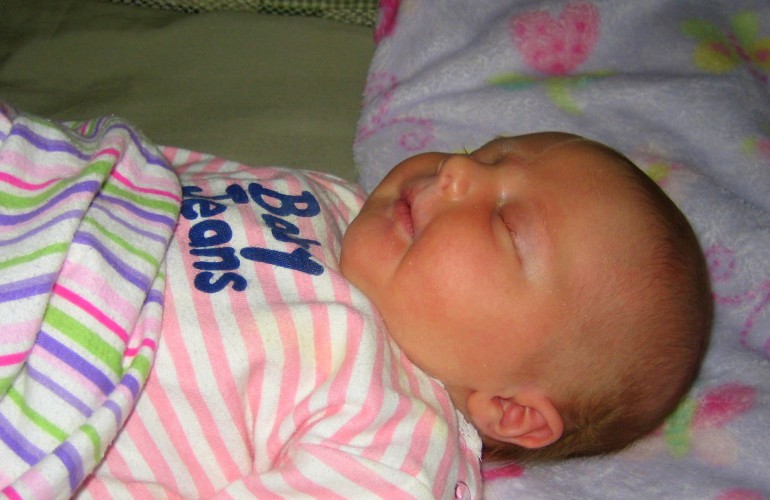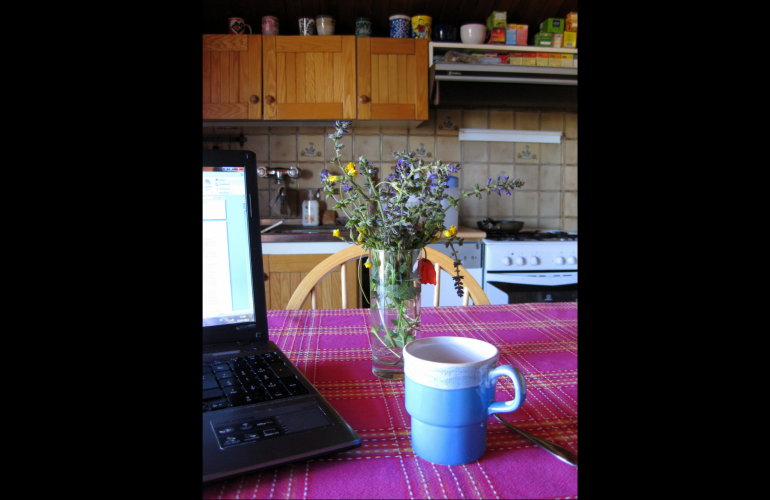[Part 1 of this story is here.]
By Tuesday evening last week, I’d spent the first 30 hours of my long-desired writing retreat in a headlock with myself, and I was “cotta” as we say in Italian. Cooked. Burned out, beaten, and too exhausted to keep hurling myself at the wall of senseless panic standing between myself and my blank document.
I suspect that this is frustrating for some of you to read. After all, I was in Tuscany—Tuscany!—with three glorious days all to myself. I’ve watched friends go on similar retreats and thought, If only… My assumption was always that prolonged peace and quiet would act as creative steroids. If only I found myself in a similar setting, then I too could produce something out of this world. But now I was there, tucked up on an Italian hillside with a project idea I loved and an awareness of my own privilege cloying the air, and I couldn’t write a damn paragraph. You’ve heard the saying, “Wherever you go, there you are”? It would seem that I had gone to Tuscany and run smack dab into myself.
One thing depression taught me about myself years ago is that I will fight to defend my personal collection of shoulds until sheer rock-bottom exhaustion loosens my grip on them. I don’t surrender the expectations I have for myself any other way. And why should I? In the thick of depression, it only seemed right to keep trying harder and harder to act sane, to pacify God and be an uncomplicated wife and smother desperation on sight. If it wasn’t working, I just needed to double my efforts, yes? Not until much later, after the rock bottom and the rebuilding, did I see what a chokehold those expectations had had on my soul.
Now, I’m not saying that going on a writing retreat is anything like going through depression, but I’d certainly arrived at my hotel last week clutching a stack of notions about how the time should go, about how I should be. Privilege-guilt factored enormously into them, as did something else… something I couldn’t put my finger on with all of my thoughts bolting away the instant I got close. I didn’t know what to do with these expectations other than cling more and more tightly to them though. If I let go, the trip would instantly be rendered pointless and earlier versions of my jealous writing self would show up to punch me in the throat to the tune of “Loser.”
Thank God for exhaustion.
If I hadn’t surrendered my weary, 96% certifiable self to the idea of a writingless retreat and clicked over to Facebook for some distraction therapy that evening, I wouldn’t have seen this:

(Liz Gilbert’s Facebook page is a gem. Get thee there, stat!)
And if I hadn’t seen this, who knows how long it would have taken me to recognize the “something else” that had been giving my brain a 30-hour swirlie as fear?
Working with words can feel like trying to choreograph dust motes. Until sentences land on the page, they’re nothing more than airborne particulates, figments of psychology and instinct that tend to dissolve on eye contact. Being afraid of writing is essentially getting worked up over nothing. That was my first thought when I read Liz’s quote. What do I possibly have to be afraid of? I’m here to transcribe thoughts, not diffuse bombs. This is a zero threat situation. WTF, brain?
When I took stock of how I’d been approaching my project, however, curiosity was nowhere to be found. Stephen King refers to stories as fossils that we excavate through the writing process, and ideally, I would have been on my knees with a trowel and an old toothbrush, intrigued to see what I’d unearth. Instead, I was paralyzed at the side of the dig. Because what if I uncovered a fossil so hideous that it made folks clutch their pearls and call their congressmen in protest? Or what if the fossil turned out to be so boring that museum viewers would ask for their money back? Worst of all, what if I had the wrong tools and botched the whole operation? What if I failed?
Fear, meet Bethany. Bethany, Fear.
Getting myself in a staring match with fear was no more helpful to me than beating myself over the head with reminders of my own privilege had been. This wasn’t something I could power my way through. (Depression 101.) When I latched onto the word “curiosity” though, it pulled me right off my petrified feet and through the murk to a new perspective on what I was doing. I closed Facebook and opened Google. Research time.
The rest of my retreat looked very different from the productive type-o-fest I’d expected. I went on long walks in the cold, ordered espressos, and adopted various park benches near my hotel for the purpose of daydreaming. I scribbled sideways and upside down in my pocket journal following looping threads of whimsy. I clipped about a hundred of the most bizarre search results to Evernote (out of curiosity, how likely is the FBI to investigate writers?) and then filled another page with follow-up questions. I still had to beat back the granddaddy of all F-words, Failure, which was all too happy to inform me that I was squandering my retreat and that research was basically procrastination in a pair of pince-nez, but curiosity kept me on a joyful forward momentum that no collection of shoulds has ever prompted in me.
I returned home last Thursday about as tired as I’ve ever been. Winning a battle doesn’t mean you’re unscathed by it, especially when you weren’t expecting the fight in the first place. I’m still feeling tender and bruisable, and I can’t pretend not to be disappointed that I didn’t return from my retreat with a manuscript of any length. I’ll be wrestling with the hows and whys of that for a long time, I suspect. However, I did bring back one significant treasure: the outline of a fossil, as clear and intriguing as a headline. And I’m not afraid of it.










